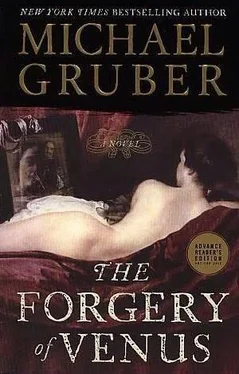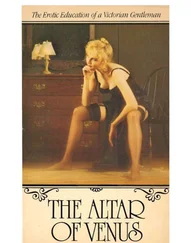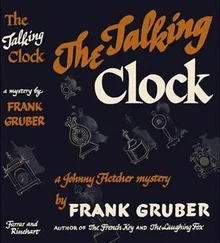I move to push by some people. There is a bridge of some kind ahead that looks familiar, and someone says, “Mister, can you take a picture of us, please?” and sticks out her hand, and there’s a digital camera in it.
I stared dumbly at her and her husband said, “Honey, he’s a foreigner, he can’t speak English,” but the woman said, “Yes, he can. You’re an American, aren’t you?”
A middle-aged woman with a Midwestern accent, small, tanned, her husband huge by her in a yellow golf jacket; the color hurt my eyes. The bridge was the Rialto, and it took me a half minute or so to understand what the little silvery thing in my hand was. Oh, right, a camera; so I take the picture and give the camera back to her. Now her smile was uncertain; she thought I was some kind of maniac.
I just stood there like I was one of those poles they use to tie up the gondolas while the tourists swarmed around me, thinking, How the hell did I walk blind across half of Venice, from San Sebastiano in Dorsoduro all the way through San Polo and the Rialto without falling into the water?
Then I ducked into a bar and had a grappa, and then another, and then a beer. Watched the tourists for a while, and when a group of seventeenth-century folks strolled by I blinked and swallowed booze until they weren’t there anymore.
Later I looked it up on the Web in an Internet café. It checked out: Velázquez and Rubens met when Rubens came to Madrid on a diplomatic mission and also to paint for the king. He did an equestrian portrait of Philip that got hung up in place of the one Velázquez did, which maybe was just politeness, but in any case the two painters got along okay. Rubens gave him some good advice, and Velázquez, age thirty, went off to Italy the next year. I had lived through his entrance into Venice the other day.
The funny part about this was that I was kind of glad to still be crazy in this way, because in having fantasies about being Velázquez I was still being who I was, if you get what I’m saying. The me Chaz Wilmot. The pasticheur, the coming forger. Not that other guy in New York who I didn’t want to think about. A small plank to cling to in the whirlpool, but it was all I had. I left the café and returned to my hotel, where I packed and drank in a local bar until I was in the mood for sleep, and then slept and woke up.
A pang of terror upon awakening. I checked. Still me.
We took off in a private jet from Nicelli Airport, which is a small airport right on the Lido, just east of the city. A Gulf-stream II, and I was trying to act cool, like I was used to this kind of travel, which I supposed I would have to learn to like from now on, although the only person to impress on the scene was Franco, who ignored me. I was alone with him in the cabin except for a pretty young woman who couldn’t do enough for us. I drank a bottle of perfectly chilled Taittinger, in memory of Dad, and got a little looped, and wondered what would happen if I turned into Velázquez on an airplane. Would I go crazy? More than I am, I mean.
Franco drank only coffee, probably because he was on duty, and read an Italian sports magazine. Not a talkative fellow, Franco. I asked him who he worked for, and he said he worked for Signor Krebs, even though we both knew it wasn’t true. Or maybe Krebs was lying, I thought. Maybe there was no Mr. Big behind all this, maybe he just said that to get me scared. But I wasn’t scared, or at least not of the forgery business. As far as that went, he had me at the million dollars.
I recall studying Franco’s head, a look like one of Masaccio’s Romans, that handsome brutality without any hint of sadism. A button man, as they say, a professional. Would he kill me, if he were ordered to? No question. I found then that I didn’t mind it as much as I probably would have if it had been presented to me beforehand as an option. Most of the great painters before the nineteenth century passed their lives rubbing shoulders with people who would’ve cut throats for a handful of coins. There was actually something terrifically baroque about it, the farthest thing from the art hags of Manhattan, invigorating as pure oxygen.
We landed in Rome and drove in a Mercedes to a house on the Via L. Santini, one of the little streets that run off the Piazza di S. Cosimato in Trastevere. We had the whole house. There was a furniture shop on the ground floor selling antiques they fake in the back; I had the piano nobile upstairs, a nice three-bedroom apartment, and my studio was one flight up. When we arrived, Franco turned me over to an old guy named Baldassare Tasso, who was going to help me with the work. Apparently he was the head forger. He showed me the studio where I was to paint and explained that the entire surface of the room, floors, ceiling, walls, had been stripped back to the seventeenth century or prior, the debris vacuumed and washed and vacuumed again. The windows were sealed shut and all the air intake came from a vent that led to a heat pump and a HEPA filtration system designed to catch and trap anything from the twenty-first century. I was supposed to enter the studio through an anteroom, in which I had to remove any clothing except for that made of leather, cotton, linen, and wool. I had to work in a natural fiber zone, for what a shame if after all my work there were fragments of nylon or polyethylene stuck to the paint! The room was furnished with an antique wooden easel, some old tables and chairs, and a couch, all vetted for period. The top floor was where the cook, Signora Daniello, and her daughter and her daughter’s kid lived. Me and Franco and Tasso were in residence in the apartment. Everything was as jolly as hell, smiles all around.
After we moved in, Franco handed me an envelope containing a black Deutsche Bank MasterCard and an ATM card for my account, which I was not aware that I had ever applied for, but that’s apparently how things got done in my new life. We had a lunch, which was a really terrific risotto; Sra. Daniello’s daughter, whose name I didn’t get, was the housemaid and waitress, and I think Franco had something going there or wanted to. After lunch and a small traditional nap I took a walk down the Viale di Trastevere until I found a bank, stuck my new card in the slot, got five hundred euros for walking-around money, and learned that I had an available balance of a hundred thousand euros.
I went back to the house sort of floating over the quaint cobblestones. Franco was standing outside the house looking anxious; he asked me where I’d been, and I told him and asked him whether there’d been a mistake in my account, so much money in it, and he said, no, Signor Krebs was very generous to those who work for him. And now a big smile. I got the sense that he was glad I was back, that he was supposed to watch me all the time.
So I figured I better get right to work, yes indeedy, and went up to the studio, where I found Baldassare taking the paper off a flat package. After he unwrapped it he set it on the easel. It was about fifty by seventy inches, a Flight to Egypt so dark and dirty you could just about make out what a talentless piece of shit it was, some Caravaggio wannabe who could barely draw.
“What do you think, signor?” he asked. I made the Italian choking gesture and he laughed. “Who’s it by?” I asked him, and he said,
“A name lost to art history, but it dates from around 1650, it was painted in Rome, and he used the same very-fine-weave linen canvas that Velázquez liked. So we will clean this shit off and you will paint on his good seventeenth-century glue-size primer.”
“And the stretchers will be period perfect too,” I added, and he got a funny, sneaky look on his face and said, “Yes, eventually.” I had no idea what he meant until a good while later.
Читать дальше












